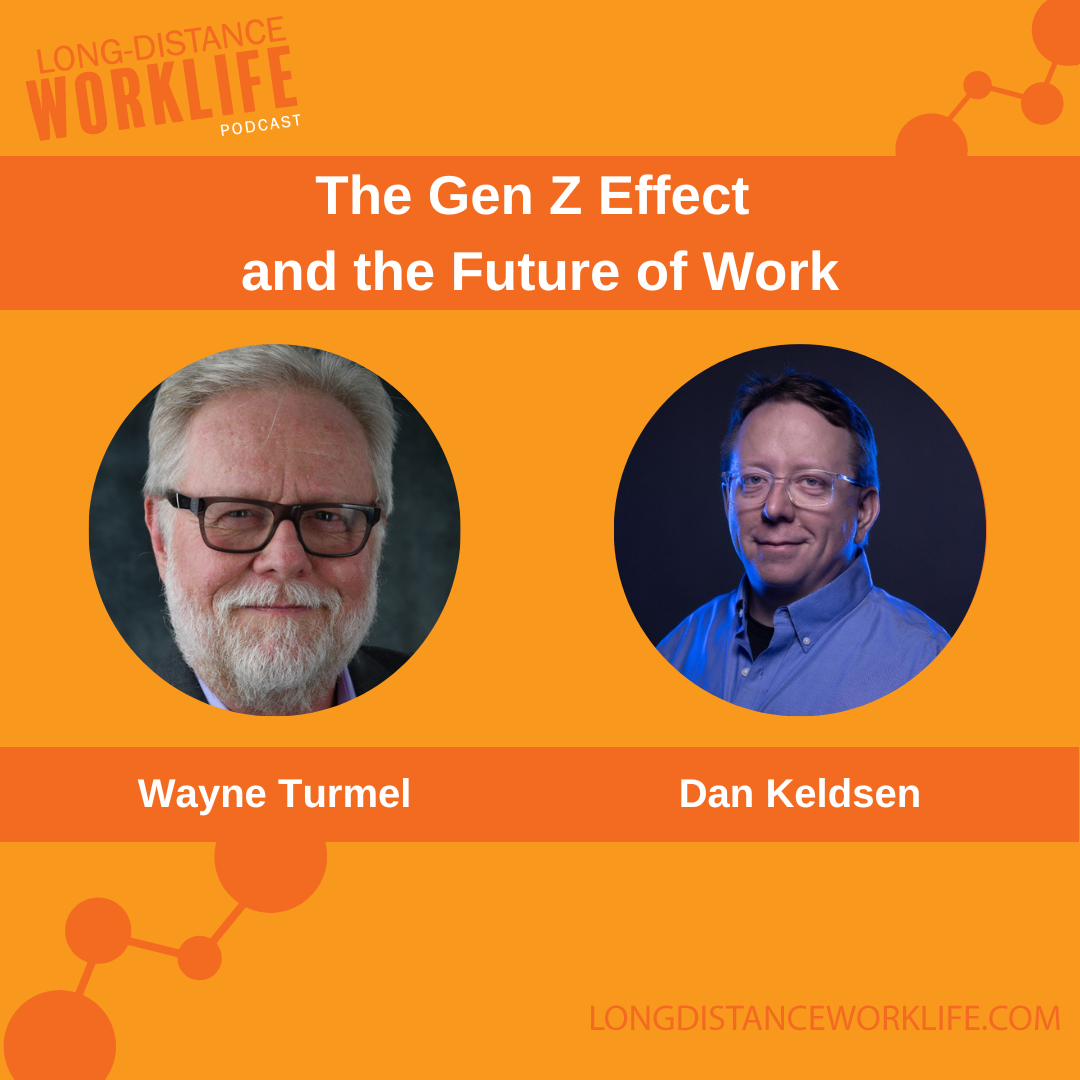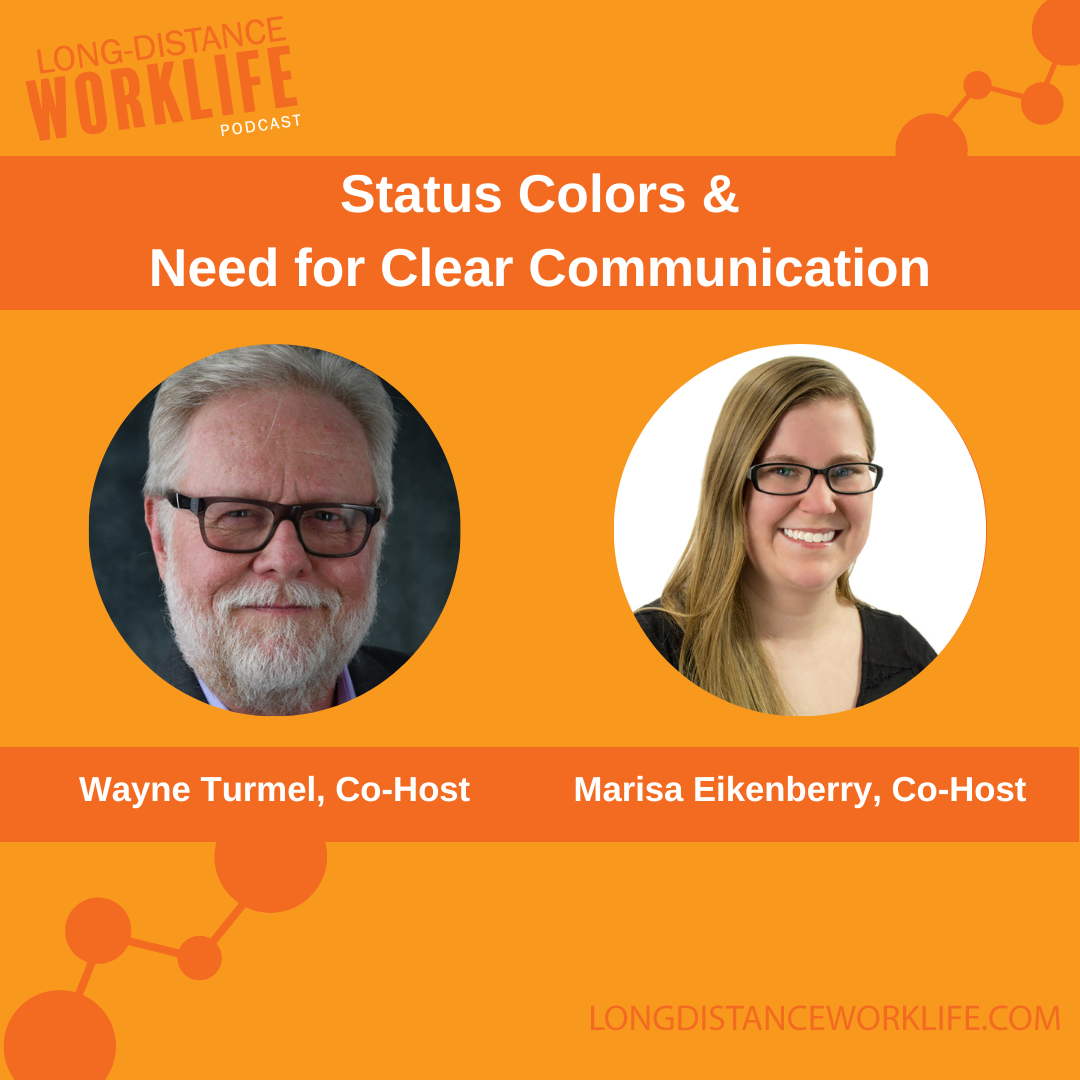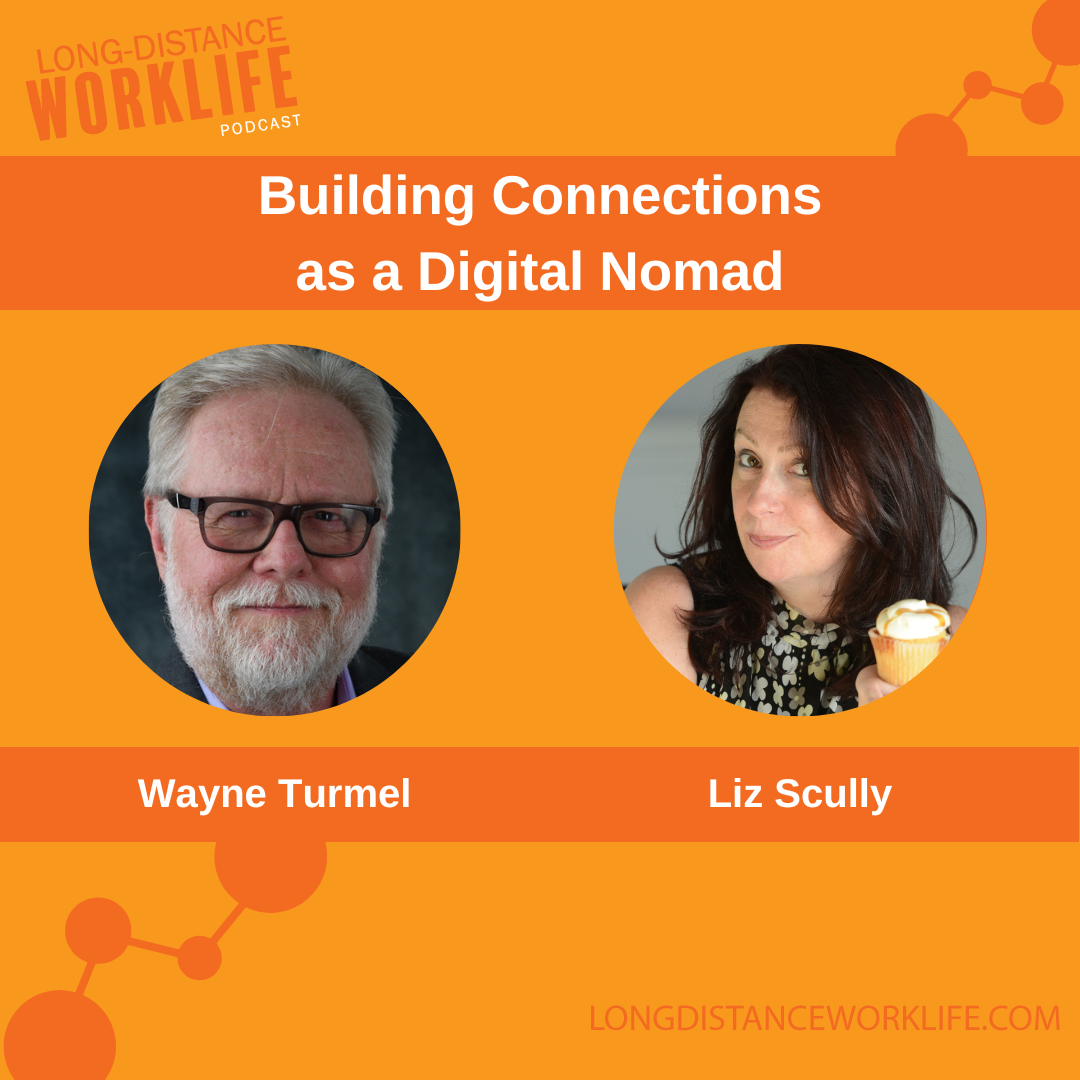Wayne Turmel engages in an insightful conversation with Dan Keldsen, co-founder of PlexiCam and the host of Next Future Today, who calls himself a pragmatic futurist. They explore the shifting landscape of remote and hybrid work, particularly in the context of the COVID-19 pandemic. Dan shares his expertise on future trends and offers practical insights on onboarding new hires, incorporating Gen Z in the workplace, and fostering effective communication and collaboration. The discussion emphasizes the importance of treating people as they want to be treated and finding a balance between leveraging individual strengths and establishing clear expectations. Join Wayne and Dan as they provide valuable perspectives on embracing the future of work and building resilient teams in a rapidly evolving world.
Key Takeaways
1. Embracing the future of work: The COVID-19 pandemic has accelerated the adoption of remote and hybrid work models. Organizations must adapt to the changing landscape and recognize the long-term effects of this shift.
2. The role of a pragmatic futurist: A pragmatic futurist like Dan Keldsen focuses on identifying future trends and guiding individuals and organizations in navigating them effectively, rather than indulging in extreme optimism or pessimism.
3. Leveraging Gen Z in the workplace: As Gen Z enters the workforce, organizations should recognize their unique strengths and experiences. Collaboration, mentorship, and cross-generational learning are crucial for creating a cohesive and productive team environment.
4. Effective onboarding in remote/hybrid settings: Onboarding new hires requires thoughtful processes that go beyond basic orientation. Drawing inspiration from successful onboarding techniques in other domains, such as video games, can help engage and retain new employees.
5. Communication and connection: Understanding the communication preferences of different generations, such as video calls, text messaging, or email, is vital for fostering effective collaboration. Treating people as they want to be treated and establishing clear expectations are key to building strong, adaptable teams.
6. Balancing individual strengths and expectations: Organizations should leverage the strengths of each team member while establishing guidelines for collaboration. By finding a balance between individual preferences and organizational objectives, teams can thrive in a changing work landscape.
7. Embracing the opportunities: Rather than viewing the future as entirely positive or negative, individuals and organizations should actively participate in shaping it. Embracing new work models and adapting to emerging trends can lead to growth and success.
Time Stamps
00:00 - Introduction
00:08 - Pragmatic Futurism and the Changing Work Landscape
01:16 - The Gen Z Effect and Integrating Gen Z in the Workplace
06:45 - Effective Onboarding in Remote and Hybrid Work Environments
10:33 - Communication and Connection in the Workplace
14:45 - Balancing Individual Strengths and Expectations
17:30 - Embracing the Future of Work and the Opportunities Ahead
Related Episodes
- Expectations for Returning to the Office When You’ve Never Been to the Office
- How wrong were we about the future of remote work? with Trina Hoefling
- Remote Work Rants: Status Colors and the Need for Clear Communication
- Crucial Conversations: Navigating Communication Boundaries in the New Age of Remote Work
- Could GIFs Be a Key to Remote Communication?
Featured Guest

Name: Dan Keldsen
What He Does: Co-founder of Plexi-Cam, host of Next Future Today podcast and consultancy, and co-author of The Gen Z Effect.
Notable: Dan has extensive experience working with companies like Wasabi Technologies, Google, Lowe's Home Improvement, AstraZeneca, and the Federal Reserve Bank of NY. He has also led workshops and training sessions on information architecture, user experience, and findability resulting in increased understanding and adoption of best practices.
Additional Resources
- Learn more about Next Future Today
- Learn more about PlexiCam - 10% Discount with this link or enter LONGDISTANCE at checkout
- Check out his book The Gen Z Effect
- Connect with Dan Keldsen on LinkedIn
- Learn more about Wayne Turmel
- Connect with Wayne Turmel on LinkedIn
- Email Wayne Turmel
- Purchase a copy of The Long-Distance Leader
- Purchase a copy of The Long-Distance Teammate
- Order a copy of The Long-Distance Team
- The Kevin Eikenberry Group
Order The Long-Distance Team
Remote leadership experts, Kevin Eikenberry and Wayne Turmel, help leaders navigate the new world of remote and hybrid teams to design the culture they desire for their teams and organizations in their new book!

00:00:08:11 - 00:00:33:16
Wayne Turmel
Hi, everybody. Welcome once again to the Long-Distance WorkLife podcast. The podcast where we try to help you thrive, survive. Make some kind of sense out of remote and hybrid work and the way the world is going. I am Wayne Turmel and Marisa is not here this week, which means we have a very cool, smart person to talk to besides me.
00:00:33:18 - 00:00:51:09
Wayne Turmel
And in this case I am going to bring in Dan Keldsen. He is the co-founder of PlexiCam. He is also the host and guiding mind behind Next Future Today the podcast and the consultancy. Dan, how are you, man?
00:00:51:12 - 00:00:52:12
Dan Keldsen
Great. Wayne, How's it going?
00:00:52:14 - 00:01:16:17
Wayne Turmel
Pretty well in the great cosmic scheme of things, but we'll see if we can't mess that up. Dan, you are you call yourself a pragmatic futurist and that's kind of where we want to go today is we're in this weird maelstrom of returning to work, not returning to work, hybrid work. you know, it's kind of goofy at the moment.
00:01:16:23 - 00:01:27:03
Wayne Turmel
So what I'm wondering is where the heck is this going? But first of all, you call yourself a pragmatic futurist. What the heck does that mean? Yeah.
00:01:27:05 - 00:01:35:16
Dan Keldsen
So that's that's exactly why I call myself a pragmatic futurist. As then we can have a conversation. So to me.
00:01:35:18 - 00:01:38:03
Wayne Turmel
You've drawn me into your little web.
00:01:38:05 - 00:02:07:02
Dan Keldsen
Isn't that nice? A little hook. Gotcha. So I think there are a lot of there are a lot of futurists who are more sort of extreme optimism. And I'm not totally pessimistic, but I think that as much as I enjoy what the future has brought me from, you know, if I think back to my ten year old self, my 20 year old self and my 30 year old, and now I'm getting up there, you know what I thought the future would bring to me, especially from technology, is a lot more than I You know, the reality is actually much bigger than what I had expected.
00:02:07:02 - 00:02:28:20
Dan Keldsen
I mean, I've read a lot of science fiction and I've seen plenty of dystopian novels and movies and all that kind of stuff. But in general, I think what my strength is in finding future trends that I see early signs of, and then I can help guide people into, Look, there are some futures that maybe you need to care about as a person or professionally or for your organization.
00:02:28:22 - 00:02:52:03
Dan Keldsen
You should be aware of them. There's others that who cares? It's not it's not relevant to you. And there are others that you know. The reason I created Next Future today is sometimes things happen like COVID and you need to very rapidly adapt to something that that next feature needs to start right now. So I think the pragmatic side is don't just think about the future else, and the future are going to be awful or wonderful, depending on you.
00:02:52:04 - 00:02:56:23
Dan Keldsen
You're saying we've got what can you do about it and actually take a role in actually playing a part in that?
00:02:57:01 - 00:03:29:21
Wayne Turmel
Yeah, it's interesting that you mention COVID because certainly in the world of remote and hybrid work, that was one of those 911 bombing of Hiroshima just moments in time that you can point to and go, oh, nothing is ever going to be the same after that. Right. And it wasn't that things weren't trending towards remote work and all of those things, but it pushed us across the Rubicon way quicker when most people were ready for.
00:03:30:00 - 00:03:39:07
Wayne Turmel
What do you because you and I were talking beforehand that we haven't even begun to figure out what the real long term effects of the last three years are going to be.
00:03:39:09 - 00:03:40:02
Dan Keldsen
Right.
00:03:40:04 - 00:03:46:12
Wayne Turmel
What do you see coming down the pipe that maybe we're not paying attention to?
00:03:46:13 - 00:04:16:15
Dan Keldsen
Well, I mean, you know, I've watched some of your episodes read some of what you've been doing. There's this sort of a backlash towards, you know, remote, remote anything or being on camera all the time is we need to be done with that, which, you know, some days I feel the same. So I've done a lot of innovation consulting in my life, which is really so again, like to the pragmatic features side, how do you take advantage when you know that it's time to take advantage of something and remote work has been possible?
00:04:16:15 - 00:04:32:22
Dan Keldsen
I mean, I remember installing dial up modems, I don't remember what speed, but we installed a bank of dial up modems for our consultant to be able to, you know, being back to the mothership. And I used to be able to make the sound of the bebop of the of the modems, which younger people don't know what we're talking about.
00:04:33:01 - 00:04:51:10
Dan Keldsen
That was the late nineties, mid late nineties. So and that was it's not like we were the first ones in the world to ever do that either. So there are like, like we said before, the before hit record, I like William Gibson's quote, The future is already here. It's just unevenly distributed. So there are it's been possible to do remote work.
00:04:51:12 - 00:05:14:03
Dan Keldsen
Even people like me probably you who did it early, Philomene or Masters, and that we are infallible. And we you know, we always get it right and we're the best people to ever possibly work with remotely. You know, it doesn't work that way, but the more you have exposure to it, you know, it's hard to learn things with technology if you're not actively participating.
00:05:14:03 - 00:05:33:04
Dan Keldsen
Like you could hear remote work as possible, but until you actually know it, it's a very different thing. And with COVID, you had no choice. So it's all right. Now you're on camera. Congratulations. You weren't expecting that to you don't have a you probably don't have a space in your house where you want to be on camera, where there's not noise or weird things behind you.
00:05:33:04 - 00:06:03:09
Dan Keldsen
Like, I certainly didn't have my background setup until COVID happened. So, you know, it's until you actively take a part in that you really can't know what you should be participating in and how to take advantage of it until you're in the moment. I think that that that acceleration that happened with COVID because, you know, we had Friday the 13th lockdown and then poof, then in three years, you know, it's it forced people to, whether they wanted to or not, they needed to figure out how to work in a new and different way.
00:06:03:11 - 00:06:10:19
Dan Keldsen
And always, I think that's very useful because it actually got people to take a step that it was long overdue in a lot of ways.
00:06:10:21 - 00:06:32:05
Wayne Turmel
Okay. So as we think about the future, you are also the author of a book called The Gen Z Effect. And it's kind of a radical notion. If you're going to talk about the future, maybe pay some attention to people who still have one, as opposed to those of us who are near the end of our journey. And I'm not being facetious about that.
00:06:32:05 - 00:07:05:12
Wayne Turmel
I mean, a lot of the sturm und drang around return to work has been driven by senior leadership management, business people who are pining for the before times. Right. But one of the things and when I say this, I get these horrified looks on people's faces. We're now going into, you know, used to be youngins. You taught them how to work in an office and and that's how they got interned and everything else.
00:07:05:12 - 00:07:30:02
Wayne Turmel
Well, we now have four, four years of new hires coming out of college who don't know what it means to have worked in an office or right in the way that you and I did back in the day. So tell me real quick, what did you kind of discover in the Gen Z effect and what does this mean going forward for the workplace?
00:07:30:05 - 00:07:53:14
Dan Keldsen
Yeah, so we wrote the Gen Z effects in 2014. So there was way before COVID, well before, I don't think Zoom existed or it was it was incredibly early. So the it is one of the topics that we talked about in the book. I interviewed a buddy of mine, Justin Levy, who I believe was at Citrix at the time about remote work and what that meant.
00:07:53:14 - 00:08:17:22
Dan Keldsen
You know, like I didn't grow up in in a manufacturing role like, you know, earlier generations might have done it, you know, where you got to get you have to get dirty and dusty and in loud environments and all. And I think that's generally a good thing because we're moving towards, you know, knowledge work and more experiential things that don't necessarily threaten your life by, you know, losing a limb from some massive machine.
00:08:18:00 - 00:08:40:15
Dan Keldsen
So I do think there's you know, there's unfortunate I mean, my my oldest daughter turns 21 in a month. My youngest is 18. So they had to live in school settings in a very different world than I certainly had or you had in the very formative years of high school or college. On the one hand, it was terrible and there's probably a whole bunch of damage that's been done to them behaviorally.
00:08:40:16 - 00:09:05:19
Dan Keldsen
And, you know, in otherwise, on the other hand, the younger generations have been taught that teamwork is a thing, that you need to be good at it, that, you know, if you do larger projects with other people and therefore you need to know how to do that. So I think in a lot of ways they're much better equipped to as far as what they've experience in team based work that they're going to be needing to do in the in the future.
00:09:05:19 - 00:09:23:12
Dan Keldsen
Because nobody, you know, things are moving so fast, everything's accelerating. No one person knows everything. You can do everything. So you really need to to me, a part of an underpinning of the Gen Z effects is you need to leverage the strengths of whoever is part of your team, young or old. You know, it doesn't matter where they are in the planet.
00:09:23:14 - 00:09:37:12
Dan Keldsen
How do you bring out the best out of them and then use that as a wedge to drive forward into the future instead of just, you know, you're you're too old, you're too young, you're too you know, that doesn't work very well. So maybe we can do better things together.
00:09:37:13 - 00:10:01:23
Wayne Turmel
Absolutely. So let me hold your feet to the fire a little bit. I mean, it's wonderful to say, Oh, don't we all have these fabulous strengths and we do. And we should learn from each other. And we should. But purely practical basis in a world where you are in the office 24, seven, five days a week. Mm hmm.
00:10:02:01 - 00:10:17:18
Wayne Turmel
How do we bring the new hires of the world on? How do we onboard them? How do we incorporate and orient them so that they become productive, fabulous members of our teams quicker?
00:10:17:19 - 00:10:33:12
Dan Keldsen
Yeah. Yeah. So I so one of the things I hope is a strength for me is I like to take a look at what's happening in sort of the consumer world and bring it to the enterprise. Most of my work has been on the enterprise side, so how do those things and the sort of bridge between both sides.
00:10:33:15 - 00:11:01:11
Dan Keldsen
So I've paid a lot of attention to what is onboarding like from like I happen to be a gamer video games to a really great job of onboarding people because if they don't, they don't make money. You know, the the long game is you have a subscription or you buy, you know, a season or whatever. And if you have not engaged your people to get over that hump, to be onboarded and have some idea what they're doing, you can't milk them for money over a very long period or.
00:11:01:13 - 00:11:05:21
Wayne Turmel
Exploit their blood, sweat and tears for years as employees. Yeah.
00:11:05:23 - 00:11:30:00
Dan Keldsen
Exactly. Yes. No, that's. Wait, you're you're the you're the pessimistic futurist. I'm supposed to be the pragmatic summing up. But so from an AI, you know, I think unfortunately for enterprises there's not a lot of you know we've we got lazy in doing onboarding for new hires. When you're there in person, you can sort of, you know, you can make up for not really a formal onboarding process by just being there.
00:11:30:00 - 00:12:01:00
Dan Keldsen
So they can ask questions of the person in a cubicle next to them or whatever, you know, in the lunchroom outside, whatever. And it's definitely harder to do that if it's purely virtual unless you put some thought into to making that happen. And it doesn't have to be hideously formal, like I'm not a big fan of like governance teams that have 30 people that meet once a quarter or something really intense like that just set some baseline of, you know, like we do like standups from the Agile world totally applied.
00:12:01:00 - 00:12:20:09
Dan Keldsen
They can fit. It's not only for developers. You could do that with your marketing team or your finance team or whatever, and that's one way to get people to know each other, which I think is the biggest piece of onboarding, is you need to get to know other people in your organization. And by virtue of that happening, you will figure things out on your own.
00:12:20:14 - 00:12:56:14
Dan Keldsen
I think that's it shouldn't be on the employee to have to figure it out. It should be supported by smarter than usual managers and policies that have at least some bare bones to them. But it's, you know, you got to put pieces in there where you can connect people. It doesn't matter if they're in the office online or some situation where they're doing both and, you know, working in an office two or three days a week and not all the time, but you need to build little bridges so that you can get people out of, you know, maybe a maybe they had a bad experience right out of college and, you know, their first job
00:12:56:14 - 00:13:15:00
Dan Keldsen
was terrible, you know, just whatever it was didn't work out. So that experience is going to color them. Coming to your organization some way is good and bad, probably. So what can you do to give them an expectation of of what it's supposed to be like and how and not just what it's supposed to be like you would find in an interview.
00:13:15:00 - 00:13:33:15
Dan Keldsen
But the reality is, you know, we do have meetings that are on Monday afternoons and we are expected to talk about what happened in the last week and anything that we ran into, you know, anything that gives you some some structure. So that it's not totally up to the individual to try to figure out the probably ungodly mess that's your organization.
00:13:33:17 - 00:13:59:14
Wayne Turmel
Well, it's interesting, too, because I think we make some assumptions about Gen Z and millennials. My daughter is, you know, the poster child for millennial, at least age wise, right? She turns 30 this year. And I think we make some assumptions, you know, because these darn kids text instead of talking that they don't want in-person or in fact, that's not true.
00:13:59:14 - 00:14:22:09
Wayne Turmel
What we're finding is and it makes perfect sense in the beginning stage of your career, when you're young, when you don't know anything, you want more human contact, you want mentorship, and you want socialization and you want to meet people and all that stuff, right? When you're a middle aged goof who's near the end of his career and you want to be left alone to get your work done.
00:14:22:09 - 00:14:25:09
Wayne Turmel
Remote work is a beautiful thing.
00:14:25:11 - 00:14:29:20
Dan Keldsen
Right? Yeah. Yeah. So you can be a hermit in your virtual world.
00:14:29:22 - 00:14:45:14
Wayne Turmel
Exactly. But. But talk to me about what Gen Z thinks of, you know, socialization in the workplace. What are they looking for that we need to give them if we want them to be good, when we want them to stick around and all of that stuff.
00:14:45:16 - 00:15:16:20
Dan Keldsen
Yeah, all of that's a multi-hour conversation potentially. Have you heard of the Golden Rule that you should treat people as you'd like to be treated? There's a platinum rule that you should treat people as they want to be treated, which is unfortunately not done all that often in my opinion. You know, like there's you know, I've watched some of your recent episodes, the question of should your camera be on or not when you're in a meeting or a conference or whatever it happens to be, there's different situations where absolutely you should always you can't wrong probably.
00:15:16:20 - 00:15:33:17
Dan Keldsen
And there are certain situations where it's it's optional and maybe it's useful to have an official. David Nobody has to be on camera. It just takes a little burden off of people. So to the point of those darn kids, all they do is talk to each other and send means and, you know, you know, and they're just want to talk all that kind of stuff.
00:15:33:20 - 00:15:52:05
Dan Keldsen
That's true. Older people are as well. You know, we're all addicted to our smartphones. What would we do without them? I don't I don't know how I would ever get anywhere I needed to drive to if I didn't have GPS that told me exactly where to go, like a voice in my head. But that doesn't mean that they're, you know, it's a different channel to communicate through.
00:15:52:07 - 00:16:14:02
Dan Keldsen
That is maybe foreign and weird for older generations. And one of the aside from the plan, one of the things that we talk about in the book is reverse mentorship, as we normally talk about mentors as the old mentoring, the young, which is very useful, also doesn't happen nearly as often as it should. But, you know, I can learn from my kids, you can learn from your kids, you can learn from other people's kids.
00:16:14:04 - 00:16:35:20
Dan Keldsen
You know, what is their experience? What is some piece of that that might apply to you? Maybe it's actually more effective to just text somebody than to send an email or give them a call because maybe they're already on another call. Why not learn from all these pieces that are possible and then purposely decide this is how like if you and I were working together, how do we want to communicate?
00:16:35:20 - 00:16:56:05
Dan Keldsen
That was one of the videos you guys posted most recently is what are the rules anyhow? You know, Kim, can we agree on you know, look, we we need to have a, you know, a video camera on one on one conversation on a monthly basis. So we know how I'm doing my job and you can give me feedback.
00:16:56:07 - 00:17:06:15
Dan Keldsen
If we don't state that ever, then it's going to be a surprise, especially on the part of the employee. And that's usually not a it's not a great feeling. I don't think it's really the right kind of tender.
00:17:06:17 - 00:17:28:17
Wayne Turmel
Well, and I think that whole notion of the platinum rule and I'm passionate believer in that. I think the flip side of that is, yes, we need to understand what they want. And it's incumbent on us to explain why we want what we want. Right. We're not doing it because we're old and we're always right and we're not doing it because we're inflexible.
00:17:28:21 - 00:17:54:03
Wayne Turmel
Sometimes that's the right thing to do, and here's why. Right. But I think those conversations are what we aren't having. So, Dan, thank you very much. As I mentioned, Dan is the coauthor, to be fair, of Gen Z Effect. He's also the host of Next Future Today, we will have links to all of that in our show notes.
00:17:54:05 - 00:18:21:11
Wayne Turmel
So, Dan, I'm going to bid you a quick adieu for a moment and just remind everybody that those show notes are available at longdistanceworklife.com. If you have enjoyed the show, if you are a long time listener, please like and subscribe. You know how this stuff works. It's important for us to show up on search engines and the like, so help us out like and subscribe.
00:18:21:16 - 00:18:51:18
Wayne Turmel
You can also reach out to either Marisa or myself, LinkedIn, email, whatever works for you. We are also always looking for pet peeves and questions for future episodes. And of course, if you have not yet checked out Kevin Eikenberry in my new book, The Long-Distance Team: Designing Your Team for Everyone's Success, you might want to check that out and you can get more information that longdistanceteambook.com.
00:18:53:05 - 00:19:08:07
Wayne Turmel
All right. That is it. Ladies and gentlemen, boys and girls, thank you for listening. We will be back in our next episode with Marisa. Thank you so much for joining us. We appreciate your support. And don't let the weasels get you down.




